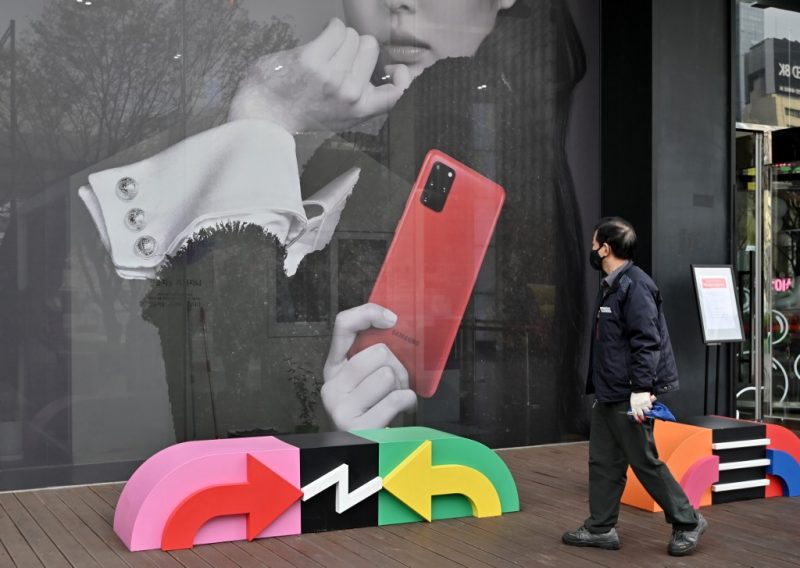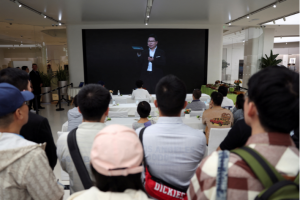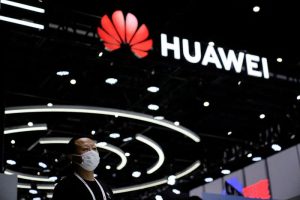(ATF) In their often rocky relationship South Korea and China are having a mini détente. Comments by a BTS K-pop band member on the Korean war were widely criticised on China’s internet, but the PRC spokesman responded in a conciliatory tone and Beijing has used its state media to scrub negative comments about the band off the Chinese internet.
At the same time, news is emerging that super-wired South Korea will likely continue to use Huawei equipment in its already functioning 5G networks, which are facing various bottlenecks. It looks likely that under-the-radar Korea will keep using Huawei 5G equipment rather than ripping it out amid ongoing security concerns.
It is unclear what the eventual situation will become, but for now Korea needs Huawei tech. As more or less the only major economy to throw Huawei a bone, China has toned down the aggressive rhetoric. But part of the motivation is also to try and prevent more companies from Korea moving operations out of China.
Soon after the United Kingdom announced its ban on Huawei, a representative of the United States declared that the UK’s move was “persuaded” by the United States, and the US had also “persuaded” many other countries to ban Huawei, a tech analysis site in China called Golden Ten Data reported.
Recently, however, the “persuasion” of the United States was ‘rejected’ by a key ally, according to the site.
Korea’s Yonhap News Agency reported on October 14 that a South Korean official revealed that US officials asked the Moon government in Seoul to exclude Huawei and other Chinese telecoms from the country’s 5G network, but South Korean officials rejected the “proposal”. This is rather surprising given that South Korea’s Samsung looks to be one of the main beneficiaries of Huawei’s demise in many Western nations.
‘Decision left to telecom operators’
According to the news source, the United States reiterated on Tuesday Oct 13 that South Korea should exclude Huawei’s 5G equipment as soon as possible and switch to trusted suppliers to ensure the country’s network security during high-level economic talks being held with Seoul. But South Korean officials said it was up to domestic telecom operators whether they do or don’t use Huawei equipment.
And South Korean telecom operators have already made a statement. As early as May, CBN learned from people in the telecommunications industry in South Korea that the country’s three major telecom operators – SK Telecom, KT, and LG U+ – have all made it clear that they have no plans to boycott or exclude Huawei equipment in 5G network construction in the country.
The head of LG U+ R&D, which is using Huawei’s 5G base station equipment, also said that if South Korea wants to achieve the goal of being a “5G power”, regardless of price, security, or technological leadership, Huawei is the first choice.
LG U+’s high evaluation of Huawei has a lot to do with Huawei’s assistance. In August, the world’s first 5G commercial network test report released by the world’s leading information provider IHS Markit said that South Korea’s 5G network evaluation report showed that LG U+ faces insufficient 5G spectrum supply – it has 80MHz, compared to SKT and KT, which have 100MHz). But through the deployment of Huawei 5G Massive MIMO, it has achieved good results in overall leadership in key indicators such as maximum rate, average rate, delay, and speed consistency.
Based on Huawei’s equipment, LG U+ also stated that it will continue to cooperate with Huawei to deploy next-generation 5G mobile communication technology. Currently, among the 15,000 5G base stations deployed by LG U+ across the country, Huawei’s equipment accounts for about 95%.
Most ‘wired’ country stuck in a ‘bottleneck’
South Korea is the world’s most ‘wired’ country, so a delay in 5G would not be appreciated. It was the first country in the world to achieve commercial 5G – in 2019, when South Korean operators won the title of “the world’s first country to achieve commercial 5G”, hours ahead of the United States.
In the same year, a 5G market development country evaluation report by the OMDIA consulting agency showed that South Korea achieved full marks in five aspects – frequency band planning, business commercialisation, network coverage, user penetration, and 5G ecology – and won the “World’s Best 5G”.
It can be said that South Korea’s 5G strength has already been rated top in the world.
As for why South Korea rejected the “persuasion” of the United States, it could be a number of factors. President Trump has been pushing Seoul to pay far more for having thousands of US troops stationed there.
Or, is it related to the country’s 5G bottleneck and the decline in user satisfaction and development indicators? The growth trend of 5G users of the three major operators in South Korea has slowed down. At present, neither KT nor LG U+ can achieve their previous goal of a 5G user penetration rate of 20-25% by the end of 2020.
And the appeal of 5G mobile phones has dropped a lot for South Korean consumers. Samsung released a new 5G model Galaxy S20 on February 28 this year, but the sales volume on that day was only 70,000 units, which was half of the sales volume of the Galaxy S10 last year.
From the perspective of 5G network coverage and 5G network speed, an OpenSignal report in June showed that due to insufficient indoor coverage by 5G networks, most 5G mobile users in South Korea use 4G networks 80% of the time. The same report by OpenSignal ranked video experiences based on 5G networks in 20 countries around the world, but South Korea only ranked 8th, far behind Norway and Japan.
And unlike South Korea’s 5G system gradually falling into a bottleneck, China, one year after the commercialisation of 5G, now has the world’s most 5G base stations and the world’s highest capital expenditure on such a network.
South Korea wants to break through the bottleneck, so Golden Ten Data’s analyst thought “it is a wise choice to cooperate with Chinese operators”.























